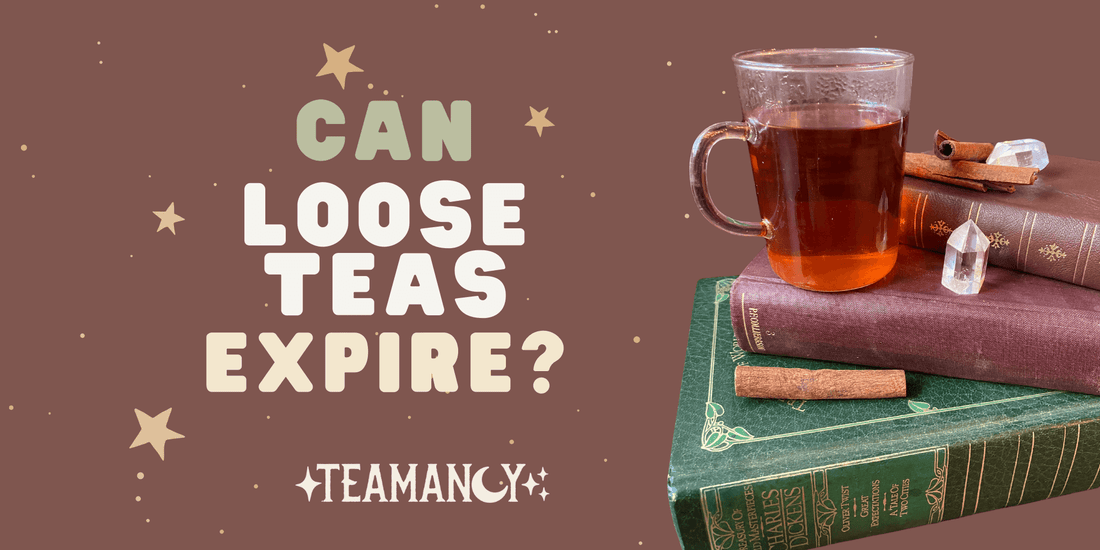
Can loose leaf tea expire?

In the enchanting world of teas, the question of whether loose leaf tea can expire is a topic of great curiosity among enthusiasts and casual drinkers alike. At Teamancy, we're here to shed light on this intriguing question and help you understand the lifespan of your beloved teas.
Understanding Tea's "Expiration"
First and foremost, it's essential to distinguish between "expiration" in the sense of becoming unsafe to consume and the gradual loss of quality and flavor that teas experience over time. Loose leaf tea doesn't expire in the same way perishable foods do—meaning it won't become harmful to drink after a certain period. However, it does undergo a natural aging process that can affect its aroma, taste, and overall sensory experience.
The Shelf Life of Loose Leaf Tea
The shelf life of loose leaf tea varies significantly depending on several factors, including the type of tea, its processing, and how it is stored. Here's a general guideline:
-
Green and White Teas: These teas are more delicate and less processed, making them more susceptible to losing their freshness. Typically, their best quality is retained for about 6 to 12 months.
-
Black and Oolong Teas: Thanks to their oxidation process, these teas hold onto their flavors longer, often ranging from 1 to 2 years.
-
Pu-erh and Fermented Teas: These unique teas actually improve with age when stored properly, much like fine wines.
Factors Influencing Tea Longevity
-
Storage: Proper storage is crucial for extending the life of your tea. Keep it in airtight containers, away from light, moisture, and odors, to preserve its quality.
-
Exposure: Air, moisture, and strong odors are the main culprits that can degrade your tea, leading to a stale or flat taste.
-
Quality: Higher quality teas, with their intact leaves and superior processing methods, tend to maintain their freshness longer than lower quality counterparts.
Maximizing Your Tea's Shelf Life
To ensure your tea remains vibrant and enjoyable, follow these storage tips:
-
Airtight Containers: Store your tea in opaque, airtight containers to protect it from air and light.
-
Cool, Dry Place: Avoid storing tea in humid areas or near heat sources. A pantry or cupboard is ideal.
-
Separation: Keep different teas separate to prevent flavor cross-contamination.
Signs Your Tea Might Have "Expired"
While loose leaf tea doesn't become unsafe, you might notice signs that it's past its prime:
-
Diminished Aroma: If the tea loses its characteristic scent, it's a sign that its essential oils have dissipated.
-
Altered Flavor: A noticeable decline in flavor or a shift towards a more muted or stale taste can indicate that the tea is aging.
-
Visual Changes: Any signs of moisture, mold, or degradation should not be ignored.
In Conclusion
While loose leaf tea doesn't expire in the traditional sense, its flavor, aroma, and overall quality diminish over time. By understanding and managing the factors that affect its shelf life, you can ensure that every cup of tea you brew from your collection at Teamancy is as delightful as intended. Remember, the world of tea is as much about enjoying the journey as it is about savoring each sip. So, store your teas with care, and continue to explore the vast, aromatic landscapes they offer.
